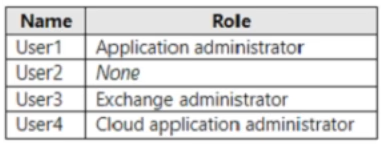Your company has an Azure AD tenant that contains the users shown in the following table.

You have the app registrations shown in the following table.

A company policy prevents changes to user permissions.
Which user can create appointments in the calendar of each user at the company?